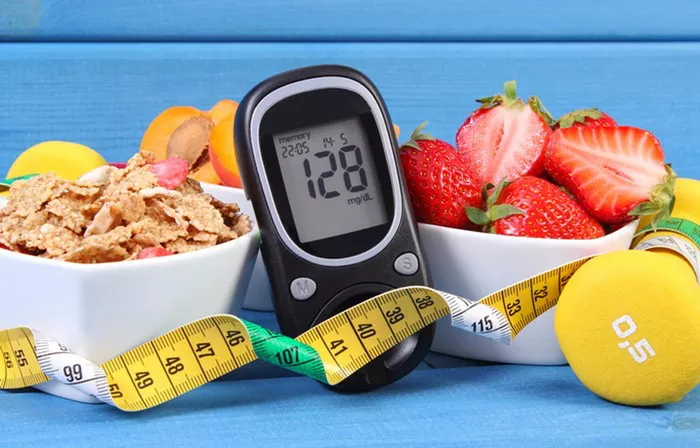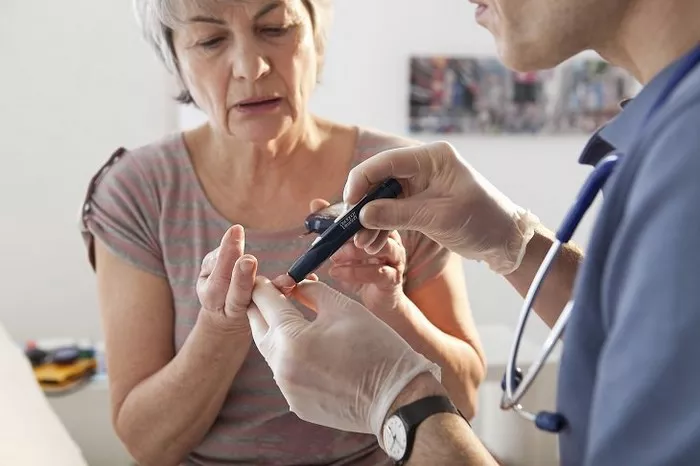Diabetes is a chronic condition characterized by high levels of glucose (sugar) in the blood. It affects millions of people worldwide and requires careful management to prevent serious complications. In this article, we will explore the fundamentals of diabetes, including the significance of glucose levels, the dangers of fluctuations, and strategies for prevention and management.
Definition of Glucose Levels
Glucose serves as the primary source of energy for cells and tissues throughout the body. When we consume carbohydrates, they are broken down into glucose, which is then absorbed into the bloodstream. Insulin, a hormone produced by the pancreas, helps regulate the amount of glucose in the blood by facilitating its uptake into cells for energy or storage.
Normal Glucose Range
For adults, the typical range of blood glucose levels considered normal varies depending on whether an individual is fasting or in a non-fasting state. In a fasting state (typically before breakfast), blood glucose levels are typically between 70 and 100 milligrams per deciliter (mg/dL). After meals, blood glucose levels may rise temporarily but should generally remain below 180 mg/dL. These ranges may vary slightly depending on individual factors and medical guidelines.
Understanding Dangerous Levels
Dangerous glucose levels can manifest as either hypoglycemia (low blood sugar) or hyperglycemia (high blood sugar). Hypoglycemia occurs when blood glucose levels drop below normal, typically below 70 mg/dL. Symptoms may include dizziness, confusion, sweating, and in severe cases, loss of consciousness or seizures. Hyperglycemia, on the other hand, occurs when blood glucose levels rise above normal, often exceeding 180 mg/dL. Symptoms may include increased thirst, frequent urination, fatigue, and blurred vision.
Impact of Low Glucose Levels
Hypoglycemia can have serious consequences if left untreated. In addition to immediate symptoms such as dizziness and confusion, severe hypoglycemia can lead to loss of consciousness, seizures, or even coma. Prolonged or recurrent episodes of hypoglycemia may also impair cognitive function and increase the risk of cardiovascular events.
Impact of High Glucose Levels
Hyperglycemia poses its own set of risks, particularly when left uncontrolled over time. Chronic hyperglycemia can damage blood vessels and nerves, leading to complications such as neuropathy (nerve damage), nephropathy (kidney disease), retinopathy (eye damage), and cardiovascular disease. Managing blood glucose levels within target ranges is essential for reducing the risk of these complications.
Monitoring and Management
Regular monitoring of blood glucose levels is essential for individuals with diabetes to maintain optimal health. This can be accomplished through the use of glucometers, continuous glucose monitors (CGMs), and periodic lab tests. In addition to monitoring, management strategies may include medication, dietary modifications, physical activity, and stress management techniques.
Preventive Measures
Preventing dangerous fluctuations in blood glucose levels requires a multifaceted approach. This may involve maintaining a balanced diet rich in whole foods, engaging in regular physical activity, adhering to medication regimens as prescribed, managing stress levels, and seeking prompt medical attention when needed. Educating oneself about diabetes and adopting healthy lifestyle habits can significantly reduce the risk of complications.
Emergency Response
In the event of dangerously high or low blood sugar levels, it is essential to take appropriate action promptly. For hypoglycemia, fast-acting carbohydrates such as glucose tablets or juice can help raise blood sugar levels quickly. For severe cases, glucagon injections may be necessary to raise blood sugar levels. In cases of hyperglycemia, individuals should follow their healthcare provider’s guidance for adjusting medication dosages and seek medical attention if symptoms persist or worsen.
Seeking Professional Help
Lastly, individuals with diabetes should regularly consult healthcare professionals such as doctors, endocrinologists, or diabetes educators for personalized guidance on managing blood glucose levels and minimizing health risks. These professionals can provide invaluable support, education, and resources to help individuals navigate the complexities of diabetes management effectively.
Conclusion
Diabetes is a complex condition that requires careful management to prevent serious complications. By understanding the significance of glucose levels, recognizing the dangers of fluctuations, and implementing preventive measures and effective management strategies, individuals with diabetes can lead healthier, more fulfilling lives. It is essential to prioritize regular monitoring, healthy lifestyle habits, and ongoing communication with healthcare providers to achieve optimal diabetes management and minimize the risk of long-term complications.
Related Topics:
What Is A Good Glucose Level In The Blood?
What Is Normal Glucose Level In The Blood?
What Is A Normal Blood Sugar Level For A Person?



























